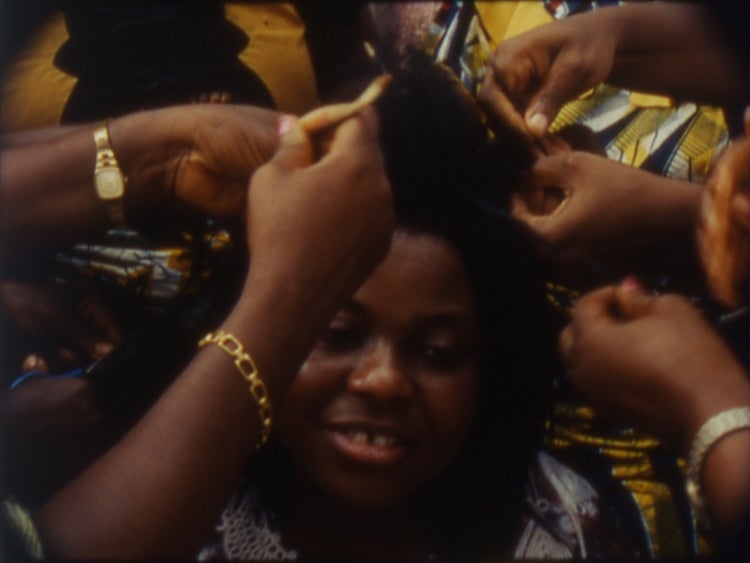You are here
The Snake in My Bed

In common with many L.A. Rebellion films, Snake touches on such themes as institutionalized racism, colonialism and the plight of women of color. Narrated in the first person by the filmmaker as an epistle to her son, The Snake in My Bed tells Diegu's story as a Nigerian woman in Lagos who is romantically pursed by a German national who has “gone native.” Despite his secretive and duplicitous actions, she eventually agrees to marry him and has his child, only to learn that he is a bigamist with a German wife and child. She travels to Germany to give birth to her son and have him officially recognized as a German citizen from Neustadt am Main, since, according to Nigerian (i.e. Ibo) custom, a person’s identity can only be defined by the home village of the father. Without paternal acknowledgement, a Nigerian child remains a non-person, an outcast without a home. Despite the German government’s legal recognition of Nigerian marriages to German nationals, the German authorities not only fail to prosecute the “husband” for bigamy, but also actively protect him from any paternity responsibilities. However, they underestimate a mother’s tenacity in protecting her child’s interests.
The first half of the film takes place in Lagos and environs, as Omah Diegu retraces her steps, visiting family and friends, attending a Nigerian wedding and church services, getting her hair braided, attempting to register her son in a German school. Employing, long, lyrical takes, the director’s camera emphasizes her people’s unity with, and integration into, the natural environment. Once in Germany, she narrates her exhausting battles with an intransient and overtly racist Jugendamt (child welfare office),Ausländermeldeamt (registry office for foreigners), and Standesamt (Justice of the Peace), while her images depict a friendly and benign German urban landscape, as well as her visits with German friends who had supported her battles.
— Jan-Christopher Horak
Available for research at UCLA
Read more about this title on our blog.
Film Credits
| Individual | Role(s) |
|---|---|
| Ijeoma Iloputaife |
Director Producer Writer Cinematographer Editor Cast |
| Berthold Schweiz | Cinematographer |
| Petra Buda | Cinematographer |
| Ozim Ott | Cast |
| Petra Gudrat-Kuckherz | Cast |
| Chinedum JajaNwachuku | Cast |
| Ezekwesili Iloputaife | Cast |
| Ben Caldwell | Crew |
To report problems, broken links, or comment on the website, please contact support
Copyright © 2025 UCLA Film & Television Archive. All Rights Reserved






 Mobile Navigation
Mobile Navigation

